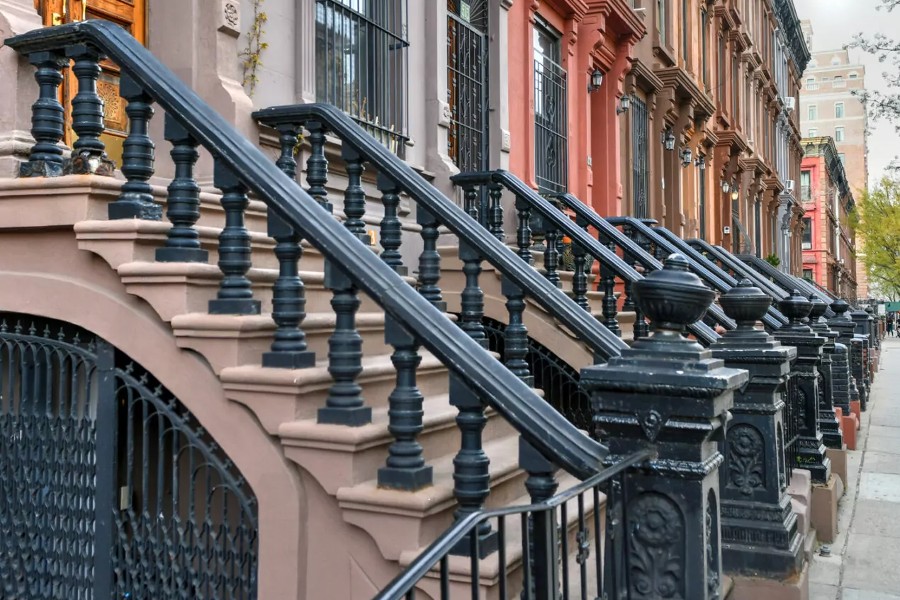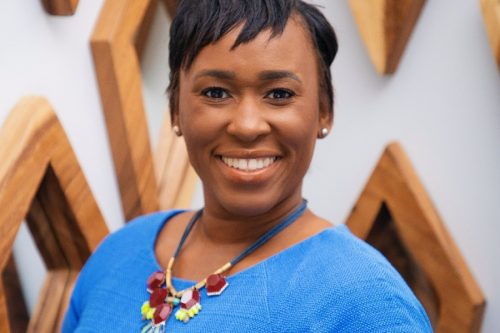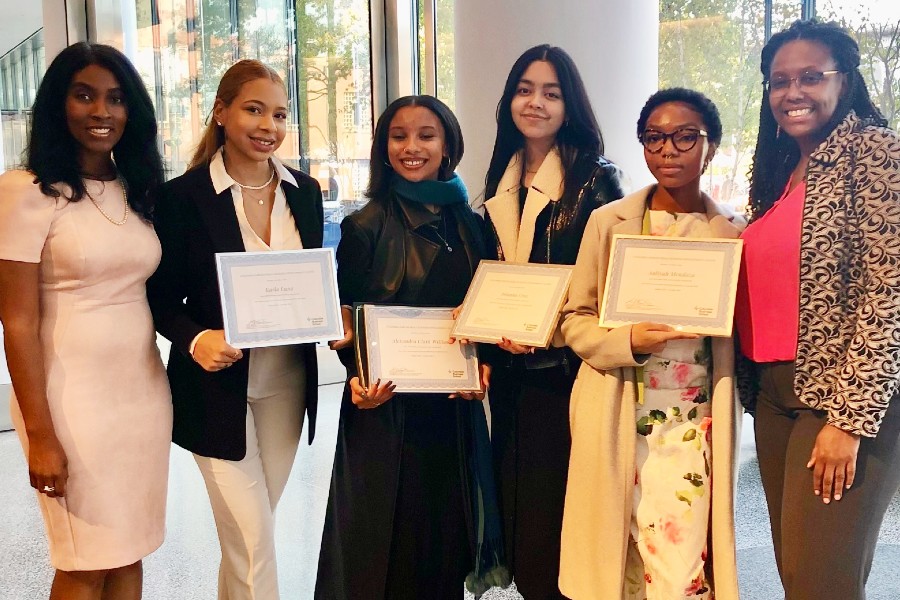
Department of Consumer and Worker Protection (DCWP) Commissioner Vilda Vera Mayuga today released a brief detailing the number of unbanked households in New York City.
The research brief, which is updated biennially, summarizes demographic and geographic information about the city’s unbanked population, highlighting systemic barriers to banking access. An estimated 305,700 NYC households (9.4%) had no bank account in 2021, higher than the national average of 4.5%.
“Lacking access to a bank account can have cascading impacts and forces individuals to rely on high-cost alternative services, such as check cashers, non-bank money orders, prepaid cards, and pawn shops,” said DCWP Commissioner Vilda Vera Mayuga.
“… help you … set yourself up for financial success.”
“Having a bank or credit union account for direct deposits is not only faster, but also a safer way to receive payments – like a tax refund. If you lack access to a bank account, I urge you to make a FREE appointment at an NYC Financial Empowerment Center today! Our financial counselors can help you open a bank account, make a budget, and set yourself up for financial success.”
DCWP partners with several banks and credit unions to offer the NYC SafeStart Account, a safe and affordable starter savings account for New Yorkers.
NYC SafeStart accounts offer an ATM card for withdrawals and features no overdraft fees or monthly fees as long as the minimum balance of $25 is met. Many of the participating banks and credit unions also accept IDNYC as a primary form of identification to open an account.
Data Highlights:

- 305,700 NYC households (9.4%) are unbanked, with the Bronx having higher rates of unbanked households, nearly two times greater than the rest of the city.
- The estimated number of unbanked households in Brooklyn decreased by 0.4% (from 9.5% or 93,100 households in 2019 to 9.1% or 90,900 households in 2021), however the estimated number of unbanked households in Queens increased by 0.4% (from 6.3% or 49,600 households in 2019 to 6.7% or 55,300 households in 2021).
- Unbanked households are concentrated in financially vulnerable neighborhoods. These neighborhoods consistently fall among those with the highest poverty rates and the lowest median household income. These neighborhoods also have high unemployment rates among working age adults.
- Residents of these neighborhoods are predominantly Black and/or Latino and are less likely to have access to the internet and have some of the lowest access to bank or credit union locations.
The report is an update to DCWP’s 2019 unbanked brief and uses data from a 2021 national survey, the most recent data available. While the full impact of the COVID-19 pandemic is still being understood, the research brief covers the first years after its onset and changes in the unbanked populations across boroughs.
NYC Financial Empowerment Centers provide free, one-on-one professional financial counseling to help New Yorkers manage their money, establish, or improve their credit, set up a spending plan, open a safe and affordable bank account, contact their lenders about debt, including student loans, develop a strategy to reduce debt or lower payments, access emergency government resources, and more.
“… NYCFEC … helping to reduce their debt by more than $100 million, …”
Since 2008, NYC Financial Empowerment Centers have served more than 73,000 clients, helping to reduce their debt by more than $100 million, and help them save more than $11 million.
New Yorkers can book a free and confidential appointment with a professional financial counselor byvisiting nyc.gov/TalkMoney or calling 311 and saying “Financial Counseling.” Services are available in person or by phone and in multiple languages.
“… protects and enhances the daily economic lives of New Yorkers …”
The NYC Department of Consumer and Worker Protection (DCWP)—formerly the Department of Consumer Affairs (DCA)—protects and enhances the daily economic lives of New Yorkers to create thriving communities. DCWP licenses more than 45,000 businesses in more than 40 industries and enforces key consumer protection, licensing, and workplace laws that apply to countless more.
By supporting businesses through equitable enforcement and access to resources and, by helping to resolve complaints, DCWP protects the marketplace from predatory practices and strives to create a culture of compliance. Through its community outreach and the work of its offices of Financial Empowerment and Labor Policy & Standards, DCWP empowers consumers and working families by providing the tools and resources they need to be educated consumers and to achieve financial health and work-life balance.
DCWP also conducts research and advocates for public policy that furthers its work to support New York City’s communities.
For more information about DCWP and its work, call 311 or visit DCWP at nyc.gov/dcwp
- The Rise And Fall Of 65 West 128th Street: A Microcosm Of Harlem’s History
- From Rainforest To Asphalt: Amazon’s Sustainability Report Struggles To Navigate Harlem’s Future
- Broom Drill In A Harlem Church: A Unique 1882 Tradition
- Wells Fargo Shares Economic Impact From Open For Business Fund
- Harlem Rallies For Kamala Harris: A Historic Gathering Of Black Women Leaders
Become a Harlem Insider!
By submitting this form, you are consenting to receive marketing emails from: Harlem World Magazine, 2521 1/2 west 42nd street, Los Angeles, CA, 90008, https://www.harlemworldmagazine.com. You can revoke your consent to receive emails at any time by using the SafeUnsubscribe® link, found at the bottom of every email. Emails are serviced by Constant Contact









